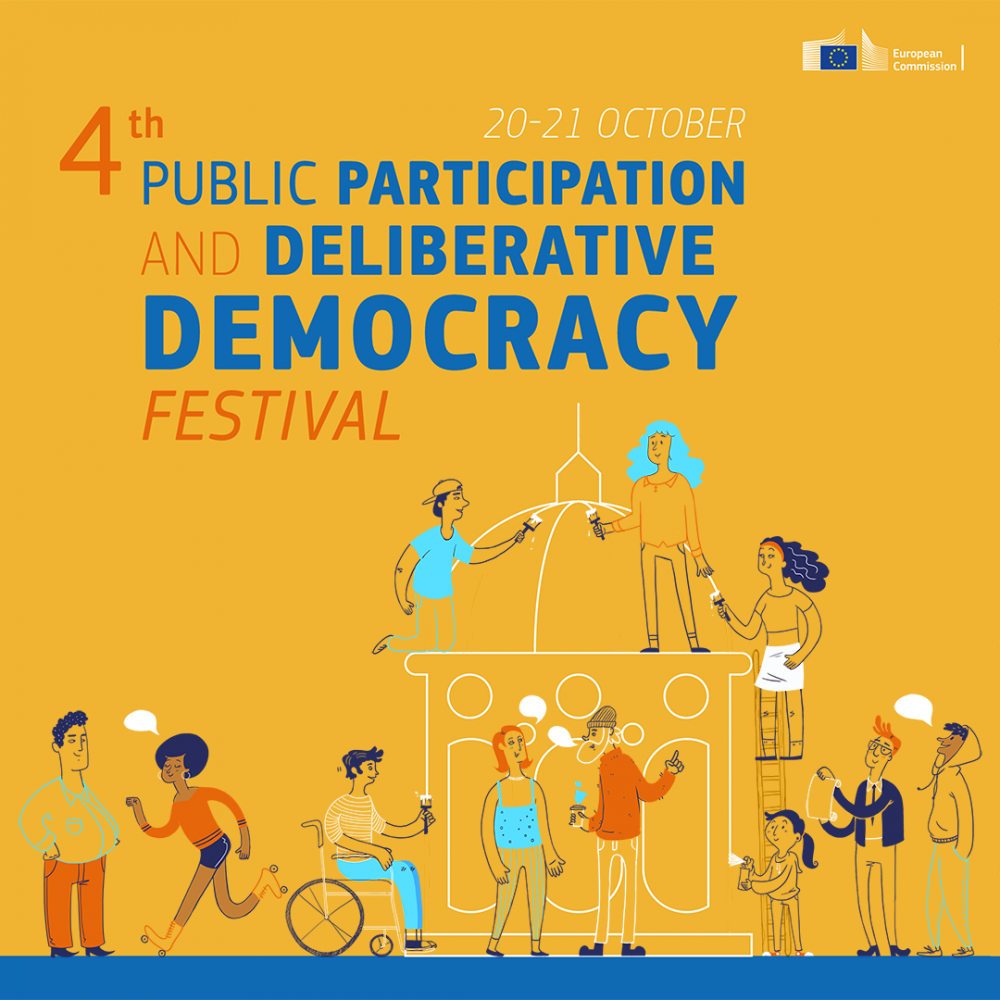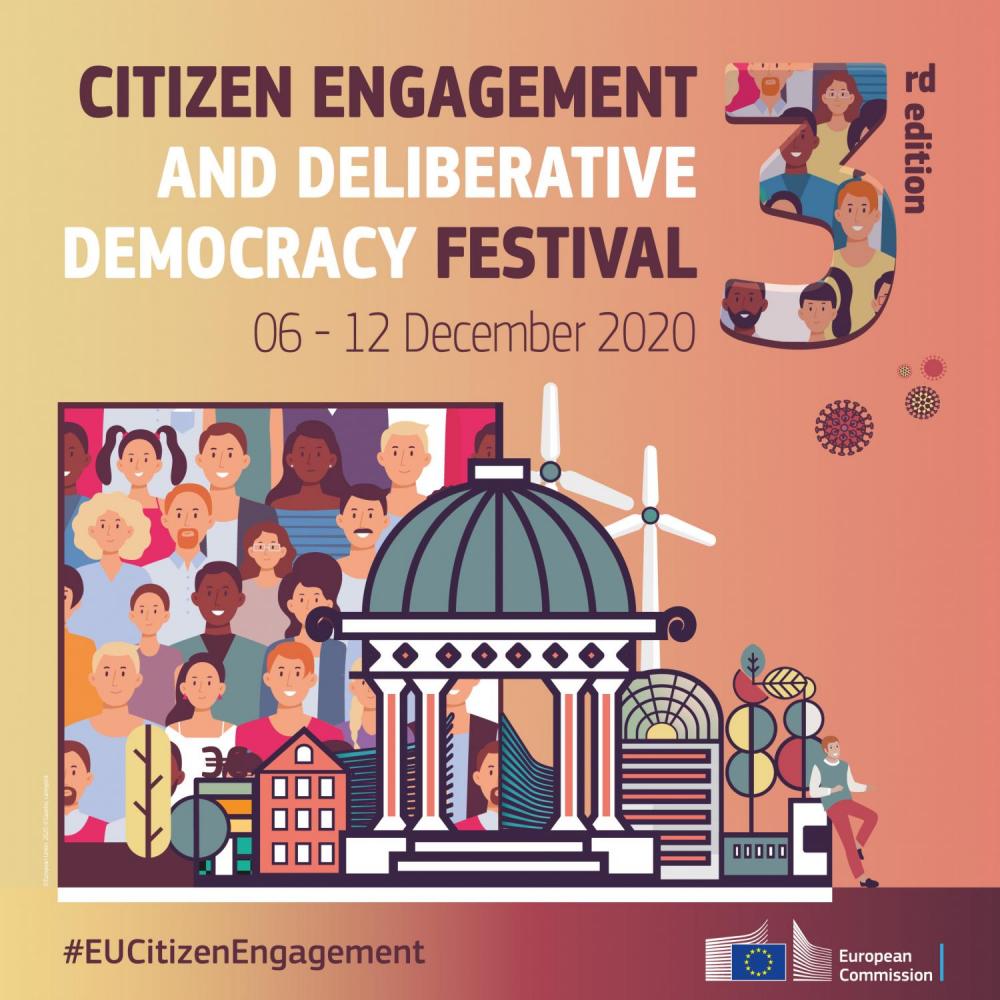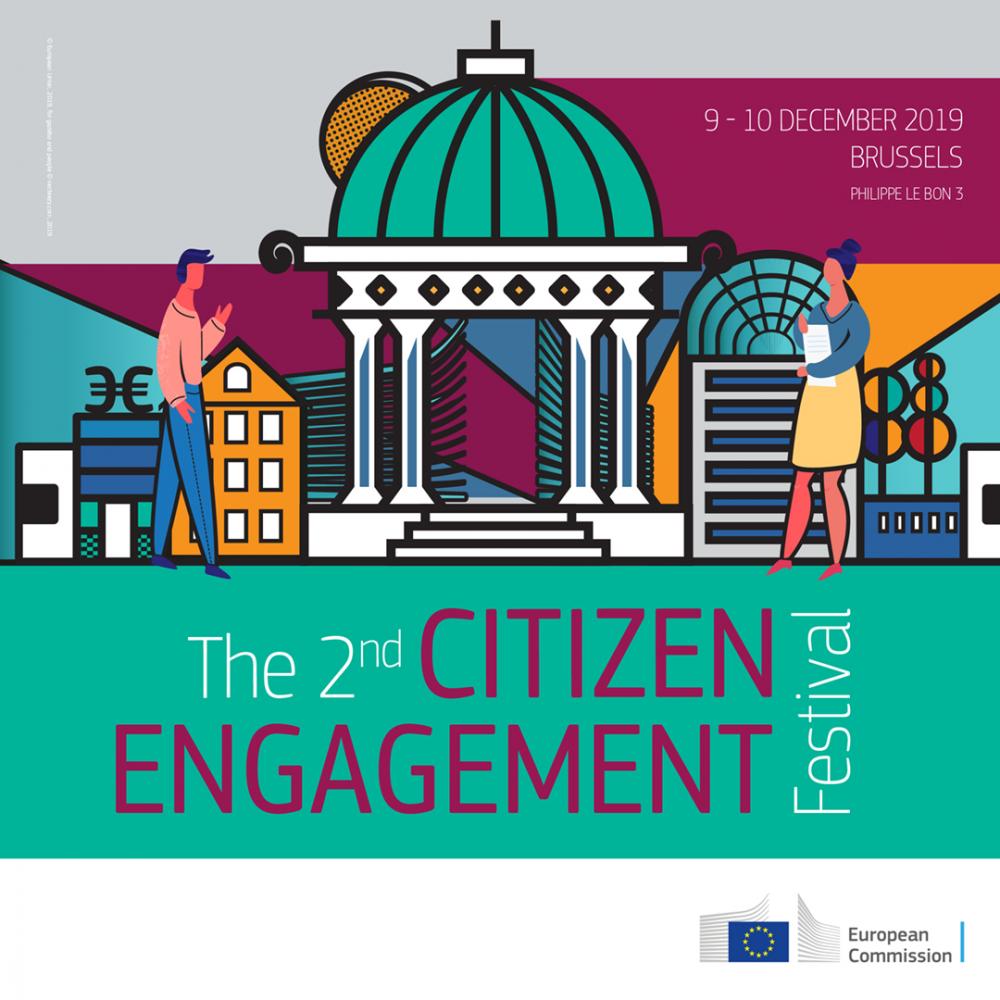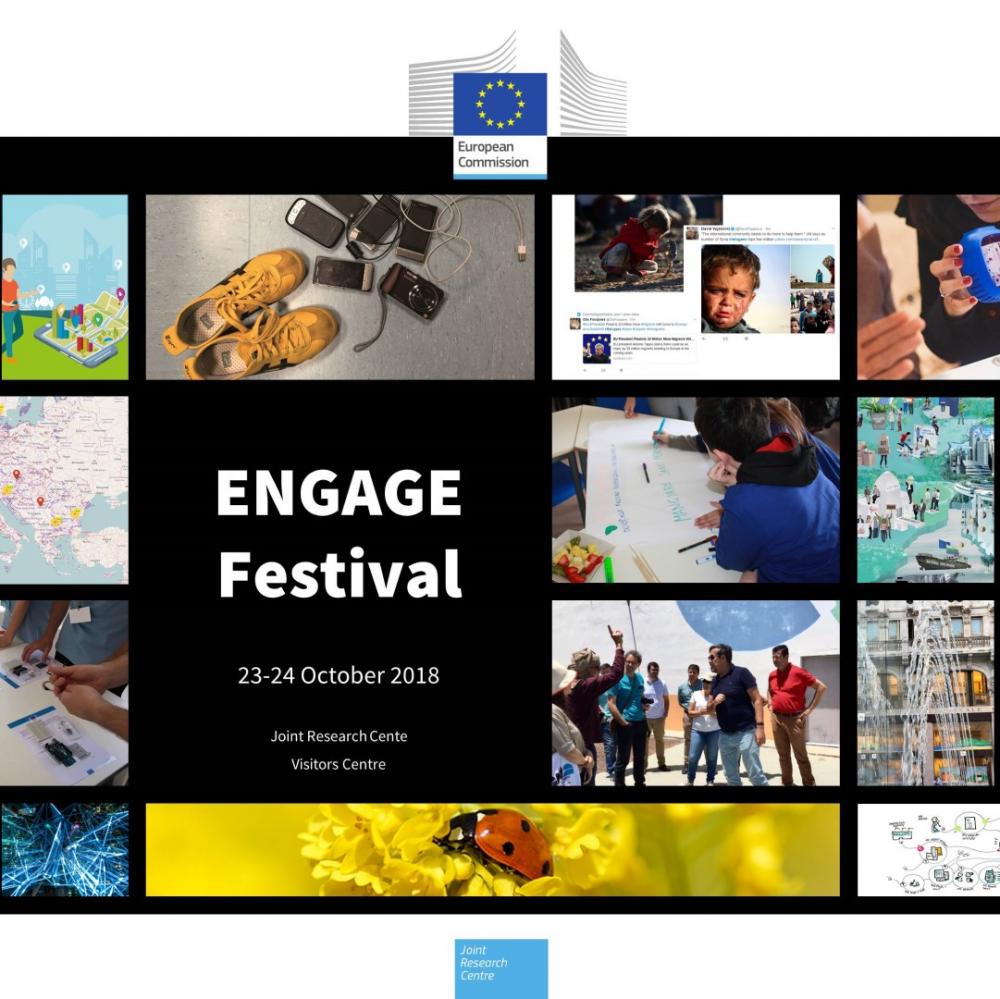Citizen Participation and Deliberative Democracy Festival
Citizen Participation and Deliberative Democracy Festival
The Citizen Participation & Deliberative Democracy Festival is an open event that brings together people of diverse backgrounds that are interested in, and working on, citizen engagement and deliberative democracy in Europe (and beyond). These include representatives from EU Member States, EU institutions, civil society organisations, academia, as well as youth and the arts. The programme generally features a variety of events including open discussions, interactive sessions, an exhibition of citizen engagement projects and artwork. The festival is also the principal networking event for the Community of Practice of the Competence Centre on Participatory and Deliberative Democracy.
5th Citizen Participation and Deliberative Democracy Festival
The theme for the 5th Festival will be the engagement of citizens in addressing environmental issues. This includes, for instance, transversal concerns of the Triple Planetary Crisis of climate change, biodiversity loss and pollution crises, agriculture and energy policies, as well as regional and local issues such greening cities and sustainable living. Over the last few years, and in response to these issues, we have seen a growing number of participatory processes, such as citizen assemblies, focusing on biodiversity and climate change across Europe – and the world – convened both by public and non-governmental bodies at local, regional, national and global levels. It is important that we bring our research, practitioner and policymaker communities together to discuss these initiatives and reflect on how to use these tools to help strengthen our democracies and give citizens a meaningful say in policies that concern them.

Past editions
The Festival, currently being in its fifth instalment, has been changing through the years. Nested within the Joint Research Centre, looking both inwards and outwards, its evolution reflected the events unfolding in the world and the internal political processes within EU institutions.
The first instalment of the Festival took place in October 2018 in Ispra. It was connected to the formal launch of the Community of Practice on Citizen Engagement at the Joint Research Centre and aimed to reach out to other interested colleagues across the Commission. Through this, we wanted to widen the understanding of the role of citizen engagement for policy across the Commission. At the same time, by bringing in the practitioners, we hoped to enrich the mapping of citizen engagement initiatives, contributing to capacity building, knowledge about citizen engagement tools and methodologies. During the sessions and conversations we discussed some cross-cutting challenges and opportunities to develop a programme of collaborative initiatives for the Community of Practice.
In December 2019 we met for the second time, this time in Brussels, with the main aim being to inform policymakers in other Commission services and EU institutions about the practical ways to carry out citizen engagement and to identify new needs and challenges. The Festival also offered the opportunity to better connect practitioners, between themselves and with policymakers from EU institutions, and so to foster partnerships across the EU.
The third instalment of the Festival took place entirely online due to Covid-19 pandemic. During that week-long meeting in December 2020, we reflected on how democracy is changing and how citizens can participate in this change. Taking a very practical turn, and responding directly to the unprecedented situation created by the pandemic, we discussed how we can make best use of citizen engagement processes in the crisis and post-crisis situations and how we can ensure that physical distance does not prevent the publics to engage, co-create or deliberate on policies that affect them.
2022 was a year in which we found ourselves with difficult decisions to make, amid conflict, whilst looking to a future beyond the pandemic and war. That is why the European Commission named 2022 as the European Year of Youth, reaching out to young people for their vision, engagement and participation to co-create the futures they want. Following this focus, we dedicated the 4th installment of the Festival to the exploration of youth participation, with particular attention given to such topics as the roles that local and indigenous youth can play in traditional knowledge transmission and circulation or the ways we can harness both virtual and physical spaces for better participatory and deliberative outcomes with, and for, youth.



